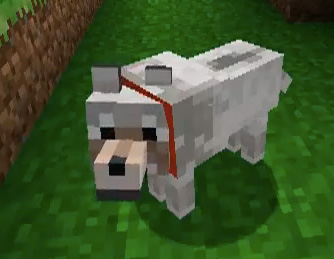Rat
My favorite encounters with non-human mammals (my sense is
that only mammals encounter one in the way I am going to describe) happen when
an animal sees me, really sees me and I see myself being seen. I am so used to
wandering this amazing semi-wild town—Santa Cruz—and its environs, watching,
unseen (or so I imagine), the non-human life around me (and here I mean all the
bugs, beasts and birds, as well as the flora, that populate, and sometimes
overpopulate, this place), that I am completely startled when a non-human looks
back. For a moment I see myself as one of them, a mammal, and for a moment I
think I see him or her gauging the danger I represent. I rarely regard
non-humans as dangerous—I’ve never met a mountain lion, but there isn’t much
else, except the Black Widow (and she’s not that poisonous), the Brown Recluse
(who definitely is), and the occasional skunk (because of the startle reflex that
is so noxious to humans and other mammals) that represents a danger to me, the
clear top-of-the-food-chain predator in this ecology. But humans in Santa Cruz
are generally a friendly lot, when it comes to so-called Nature: most cherish
being able to live among the wild ones to whom this place belongs, and so
represent no threat. In any case, if I am still and if I carefully arrange my
body and my gaze in postures of passivity, submission or general non-threat,
the creature overcomes his or her fear and simply looks.
But one encounter in particular from recent years haunts me.
I had a rat problem. I live in the country, and, well, rats
do too. They live here, with or without the rest of us (unlike the rats of New
York City or other urban areas who, should those areas ever be emptied of
humans, we are told, would quit the premises within a week or two). My house is
an old house and not airtight. It is also built into the hillside: parts of it
are underground, separated from the earth by what are called “rubble” walls,
river rock with very little cement between in order to permit the rock to
breathe in a rainstorm (it leaks, but only a little) and, presumably, to shift
but not collapse in an earthquake. One winter, when it was very cold and wet,
the rats, especially, I think, the moms, decided to move in. Now, the rats here
are gorgeous, with clean glossy brown coats, nothing like the scary caricature
of dirty urban vermin normally conjured when there’s talk of an infestation.
They are also huge, big enough for my dogs to attack but much too imposing for
most of the neighborhood cats. The problem I’d been experiencing had to do with
sound (they shrieked and hollered in my walls at night; rats are very
loquacious), and with smell. Rats, especially nesting mothers, produce a strong
unmistakable—and to the human olfactory senses, very unpleasant—odor. After a
week of setting traps that worked for the first two days (after which the rats,
intelligent beings that they are, changed their routes, foregoing the delicious
peanut butter and cheese lures I had prepared), I used—once and only once, I
swear, and never again, I promise—poison. And then, one day, I came home, and
as I approached my kitchen I saw, perched on the counter, a very large rat. She
sat there, aware of my presence, and looked at me. I stood there, aware of
hers, and pondered my dilemma. I had no idea what to do. As I walked cautiously
toward her, she moved away, returning to the crevice from which she had
apparently emerged. And as she departed, I noticed a smear of blood trailing
behind her and knew that she was dying. Rat poison causes internal bleeding;
that is how the rat who ingests it dies. Now, I know that humans hate rats with
a passion, and I know that I, though not hating them, did not want one in or
near my shelter. But I did not, till that moment, know how viciously sadistic human
methods of eliminating them, including my own, could be. As it turned out, the
rat exacted her revenge, albeit unwittingly; she died behind my kitchen counter
somewhere near the rubble wall, and for weeks I could smell the rotting corpse,
reminding me of what I had so willfully and yet so thoughtlessly done. But
there was that moment when we exchanged gazes—she with the eyes of a dying
mortal, and I with the eyes of a murderer, newly conscious of the enormity of
the crime I had committed against her.



